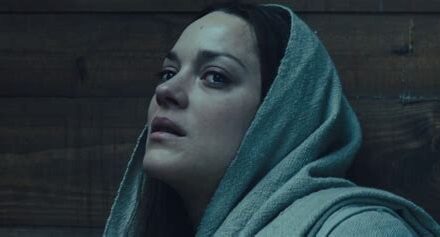Someone once said that Sherlock Holmes is so beloved because his personality is based on something we moderns want to believe we possess: a clear, logical mind that helps us solve almost unerringly the problems we confront. Netflix’s The Queen’s Gambit, based on a novel by Walter Tevis (otherwise known for The Hustler, The Color of Money, and The Man Who Fell to Earth), has a similar attraction. People who don’t know a knight from a rook nevertheless take their analytical skills for granted and assume those skills will keep them one step or even ten steps ahead in the great big chess game of life.
I haven’t read the novel, so I’m not able to say whether The Queen’s Gambit as a mini-series faithfully reproduces the original story, but most, I think, will agree it is handsomely shot, well-acted, and quite engrossing. The plot revolves around Elizabeth “Beth” Harmon (Anya Taylor-Joy), an orphan who grows rather quickly—for the incredulous perhaps too quickly—into a chess wunderkind.
And that’s the easy part. Of her mother, we learn little, but little goes a long way. She either deserted or was deserted by her husband, lives in a trailer, has a Ph.D. from Cornell in mathematics, hates men, and rears Beth by herself before she commits suicide. Since she decided to end her life by driving her car into an oncoming truck, she might have committed murder as well, but Beth, in the back seat, survived with hardly a scratch.
From there, Beth goes to a home for orphans, run by a Christian group—whether Protestant or Roman Catholic is hard to say. There she meets Jolene (Moses Ingram), a black inmate whose foul mouth constantly gets her into trouble and whose sage advice largely amounts to telling Beth the right time to take the daily tranquilizer each girl gets. Beth is academically quicker than the other girls, finishing her work so fast one day that she is sent to the basement to clean erasers to keep her busy. There she sees Mr. Shaibel (Bill Camp), the janitor, who spends his leisure time playing chess against himself. The curious Beth watches, and soon he teaches her the game. He’s good too, but it isn’t long before Beth is beating him.
Adoption follows but into a home that soon breaks apart, leaving Beth alone with her adoptive mother Alma Wheatley (Marielle Heller). Alma, like Beth’s real mom, lives with disappointment—she might have been a successful pianist except for her stage fright—and, needless to add, her marriage didn’t compensate for much. She puts Beth in school, and though the girl is a misfit, she discovers competitions where she can play chess and shine brightly against girls and boys, mostly older than she.
Once Alma learns that Beth can actually win prize money, she begins to actively promote her, taking her to competitions far beyond Kentucky where they live. Friends of a sort begin to watch her, mainly Harry Melling (Harry Beltik) whom she beats for the Kentucky championship, and Bennie Watts (Thomas Brodie-Sangster), the U.S. champion, who coolly observes her progress. In Mexico City, she meets the Russians for the first time, and though she beats a young Soviet prodigy, she cannot top chess grandmaster Vasily Borgov (Marcin Dorocinski).
Is her failure due to inexperience? Partly. As she acknowledges, she is an intuitive player, but as Harry and later Bennie tell her, she must study the game with greater care. And that’s one of her two problems. The other is her addictions: first to the tranquilizers that calmed her at the orphanage and second to alcohol. Moderation is unknown to her. Any new thing—marijuana, bourbon, wine, cigarettes—provides an occasion for a binge. It quickly becomes apparent that if she cannot overcome this weakness, she will never beat Borgov and, worse, destroy herself.
In many ways, the real star of the series is chess itself. It’s a credit to the director and cinematographer that the game—in the tournaments, in Beth’s increased reading of its lore, and in the board she imagines (sometimes through a drug-induced haze) on the ceiling at night—remains so engrossing on the screen. It’s no wonder that, with a little help from Covid-19 isolation, it has gained so many new players since the series’ release.
The acting, as I have indicated, is quite good. Taylor-Joy has been justly praised and honored for her portrayal of a strange figure who, like Tevis’ Fast Eddie Felson in The Hustler, lives for one thing but cannot truly win until he exorcises a few demons. Beltik is fine as Harry, not good enough to rise to the heights of the chess world and smart enough to know it. Brodie-Sangster is equally convincing, but I wish the creators of the show had not dressed him to look like a combination of Doctor Who and the Marlboro cowboy. Exhibitionists exist perennially, but that kind of getup would have been more in place a few years later than 1967.
Ingram as Jolene appears too much of a cardboard character, from her foul mouth as a teen to her Angela Davis Afro as a young woman—and, of course, her radical aspirations. Dorocinski conveys Russian inscrutability successfully, which is more than one can say for the CGI version of Moscow, which looks in panorama like an upscale Coney Island.
The foul language is what we’ve come to expect of Netflix, with the “F-word” as the chief offender. But is this true to life? Such obscenities became de rigueur only after Woodstock (1969), and the series takes place from the mid-fifties to 1968. This lapse may not bother everyone, but it becomes downright offensive when Beth, counseled by her friends to pay her way to Russia via a Christian missionary group, tells the kind, middle-aged women representing the organization that the statement of faith they ask her to sign is a lot of “f*****g nonsense”—this from a girl ignorant of history, politics, and theology, someone, you might say, that puts the non in nonsense.
On balance, though, The Queen’s Gambit is worth watching. Seven episodes long, it is steadily interesting as a study in obsession or, perhaps, highly cerebral devotion. Should you watch it? It’s your move.














